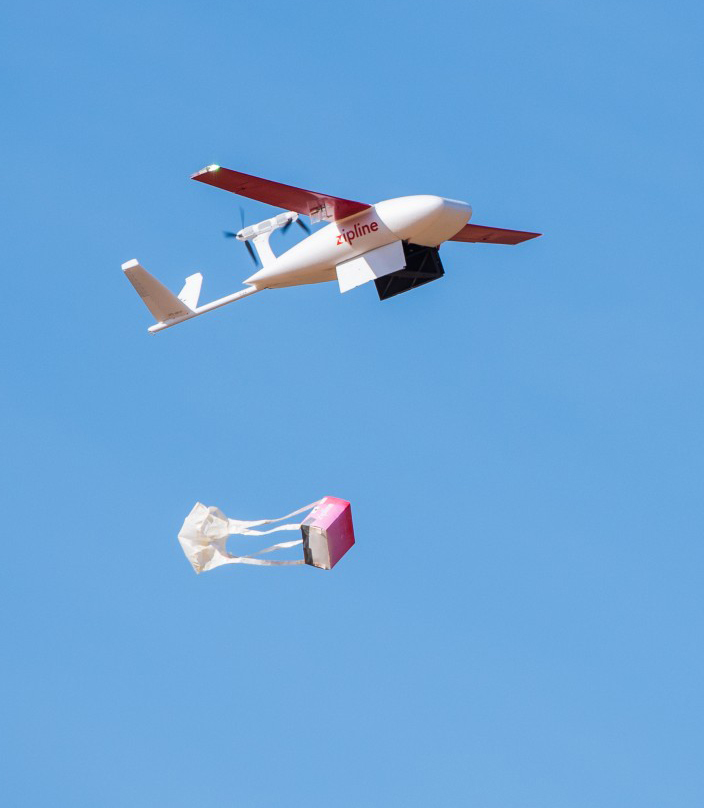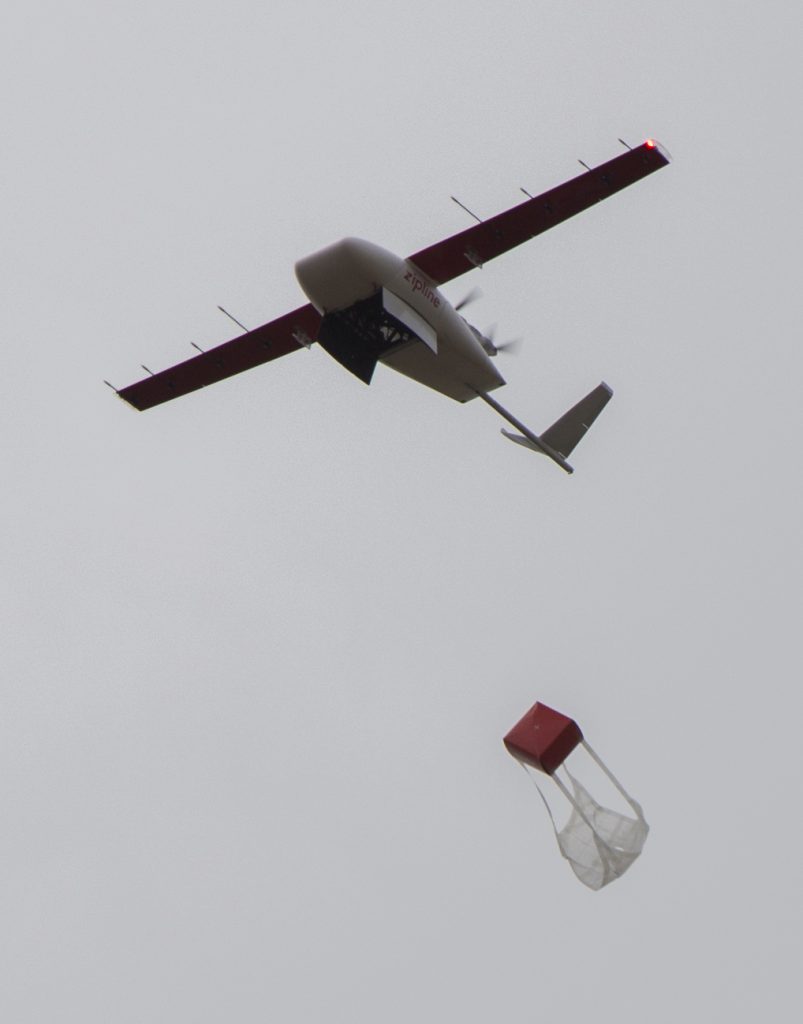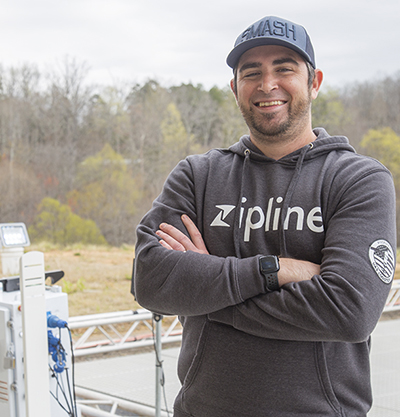Zipline has received U.S. Federal Aviation Administration (FAA) Part 135 air carrier certification to operate in the U.S. Although concern still exists by pilots of fixed and rotary-wing aircraft, Zipline is now authorized to complete the longest range on-demand commercial drone deliveries in the U.S., with operations covering the largest area and greatest distance of any uncrewed commercial aircraft delivery system (UAS) in the country. This is the first part 135 certification issued under the FAA’s BEYOND program, an initiative designed to safely integrate beyond visual line of sight (BVLOS) drone operations into U.S. airspace.

Under this new certification, Zipline will begin flying routes of up to 26 miles roundtrip, including through Class D airspace. This service is the most complex in the U.S., and is authorized to fly over people, in controlled airspace and beyond visual line of sight. Under the FAA’s oversight, Zipline will work to expand its service to meet rising demand across new geographies and use cases, furthering its mission to transform the way goods move so that all people can access exactly what they need, when they need it, as easily as sending a text message. In doing so, Zipline will also help reduce congestion and emissions. In fact, a recent real-world sustainability analysis determined that Zipline deliveries reduce carbon emissions by up to 98 percent compared to traditional delivery methods.Â
Initial flights will operate out of Zipline’s hub in Kannapolis, North Carolina, which is capable of serving people within a nearly 8,000 square mile area and delivering half a ton of supplies per day. From this facility, Zipline will begin operations with its partners Novant Health, Magellan Rx Management, and Cardinal Health.
Although drone delivery companies say they take extraordinary steps to make sure their drones operate safely in the national airspace, concerns still exist over the proliferation of drones. “As a pilot who lives less than four miles from the Holly Springs Jersey Mike’s and flies a helicopter based seven miles from it (KTTA), I am not thrilled to be at the forefront of that movement,” says Chip Davis, in regard to food delivery by Flytrex (See related article).

To help address those concerns for safety, Zipline has unveiled its new Detection and Avoidance (DAA) system. A first for the industry, the new system uses onboard acoustic-based technology to enable safe and autonomous flights in complex, and even uncontrolled airspaces. This technology marks a significant step forward in realizing commercial autonomous deliveries at scale.
Zipline’s new DAA system relies on a series of small, lightweight acoustic microphones and onboard processors to navigate airspace and provide 360-degree awareness with a range up to 2,000 meters. Using this onboard system, aircraft can autonomously monitor for other aircraft in real-time, and adapt to changes in their flight path.
“Our DAA system is the holy grail for drone technology,” said Keenan Wyrobek, co-founder and CTO of Zipline. “We’ve created a system that is agile enough to operate with the finest of margins and can think for itself and adjust in real-time. DAA is the result of years of development and hundreds of thousands of flight hours. It’s an elegant answer to the challenges of flying beyond the visual line of sight in the United States not in 10 years–but today.”
Davis says that drone companies assert that they adhere to all latest regulations but given the nascent state of those regulations winding their way through the FAA bureaucracy, that gives him little comfort. “At the moment, the proposed regs put the “see & avoid” onus on the aircraft, not the sandwich-delivering drone,” says Davis.

“North Carolina has always been on the cutting-edge of aviation innovation,” said Joseph Marshall, Director of UAS Flight Operations in the U.S. Over the last several years, Zipline has worked closely with the state’s Department of Transportation through the FAA’s Integration Pilot Program (IPP) and subsequent BEYOND Program to advance and integrate uncrewed aircraft operations. “Through our local partnerships, and our collaboration with NCDOT, we’ll bring this track record of fast, safe and reliable service to the people of North Carolina,” says Marshall. “Our work with each of our partners will be different, designed to meet the unique needs of their business and their customers, but each is intended to enhance the end user experience.”
In addition to operations in North Carolina, the company plans to launch deliveries in Utah with its partner Intermountain Healthcare later this year, and expand flights with Walmart in Arkansas, which began in November under FAA part 107.
Zipline designs, manufactures and operates the world’s largest automated, on-demand delivery service. To date, the company has flown more than 23 million autonomous miles, including BVLOS operations, and completed more than 325,000 commercial deliveries with its electric aircraft. Zipline currently operates with Walmart in the U.S., with Toyota Tsusho Corporation in Japan and at national scale in Rwanda and Ghana, where it serves more than 2,000 health care facilities. With part 135 certification, the company can significantly expand its U.S. service with its partners, including Novant Health, Cardinal Health, Intermountain Healthcare, and Magellan Rx Management.
“Zipline’s sustainable instant delivery system is transforming healthcare and retail,” said Keller Rinaudo, co-founder & CEO at Zipline. “Today, on average, Zipline makes a delivery every four minutes—ensuring people get access to the products they need, the moment they need them. With our part 135 certification, and in close collaboration with our partners and the FAA, we are one step closer to making safe, clean and quiet instant delivery a reality for communities across the U.S.”
Part 135 certification follows a period of record global growth for Zipline. The company has delivered over one million COVID-19 vaccines in Ghana, launched delivery of thousands of retail products in partnership with Walmart and fresh food delivery in Arkansas, begun operations in Nigeria as well as with Toyota Tsusho Corporation in Japan, announced entry into Ivory Coast and Kenya and expanded operations in Rwanda to become the world’s first 24/7 instant logistics service.



